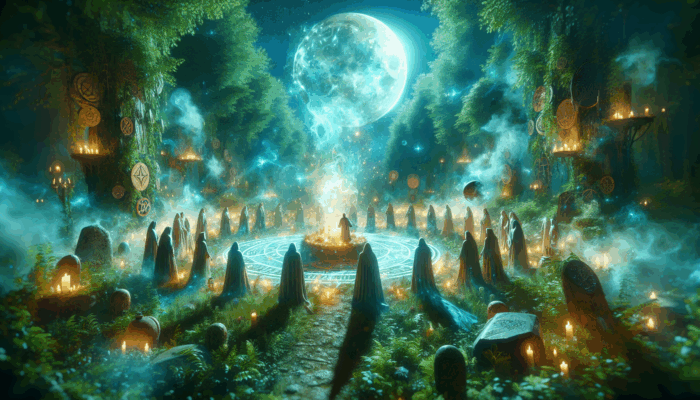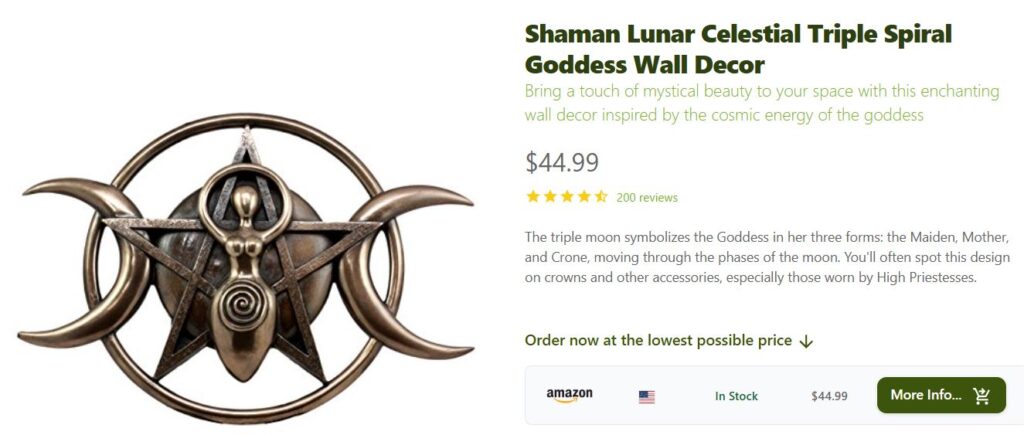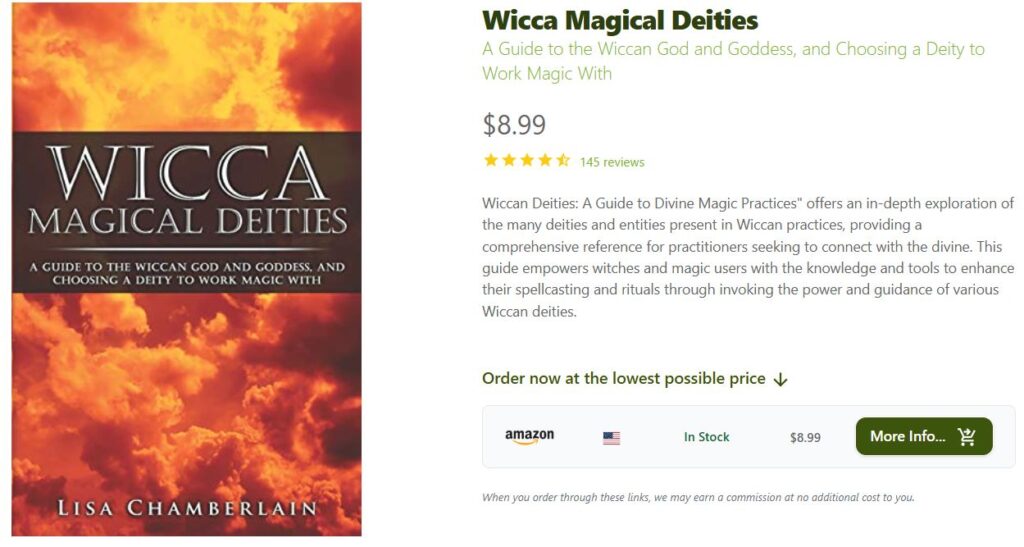Exploring the Rich Origins and Historical Context of Wicca
Influential Roots of Wiccan Practices

The fundamental essence of what Wicca is derives from a rich blend of ancient pagan traditions and folklore that span various cultures and epochs. Drenched in vibrant rituals and profound beliefs, these time-honored traditions planted the seeds for the modern practices we recognize in Wicca today. Across different continents, the profound respect for nature and the veneration of deities take on diverse manifestations—from the ancient Greeks and Romans, who revered many gods, to Indigenous cultures that honor the earth and its natural cycles with sacred ceremonies.
The ancient Celts are particularly noteworthy in shaping Wiccan belief systems. Their celebrated festivals, such as Samhain and Beltane, exemplified the cyclical nature of life and death, themes that resonate deeply within contemporary Wicca. These foundational influences did not simply vanish; instead, they adapted and evolved through the centuries, merging with local customs and spiritual practices to create today's rich tapestry of beliefs.
As societal structures transformed over the ages, so did the expressions of spirituality. The advent of Christianity in Europe led to the suppression of various pagan beliefs; however, like a phoenix rising from the ashes, these ancient practices began to re-emerge during the 20th century. Today, Wicca represents a beautiful amalgamation of these ancient traditions intertwined with contemporary spiritual needs, showcasing human belief systems' remarkable resilience and adaptability throughout history.
The Modern Renaissance of Wicca
The 20th century marked a significant revival in what is Wicca, primarily attributed to pioneering figures like Gerald Gardner, often credited with its modern inception. Gardner’s groundbreaking work in the 1950s introduced a structured and systematic approach to Wicca, blending ritual, ethical principles, and community involvement. His writings and teachings ignited a global movement transcending geographical barriers, inspiring a widespread passion for witchcraft and pagan practices worldwide.
This resurgence was not merely about rituals; it represented a broader cultural phenomenon and a response to the rigid frameworks of organized religion. The feminist movement of the 1960s and 1970s further propelled Wicca’s popularity, as women sought empowerment through a spiritual practice that embraced and celebrated their feminine identities. The archetype of the witch shifted from one of villainy to a symbol of strength, intuition, and an intrinsic connection to the natural world.
As more individuals discovered solace in Wicca’s inclusive and adaptable nature, the formation of covens became increasingly popular, fostering community and shared spiritual experiences. This communal aspect allowed for blending diverse ideas from various cultures, enriching the Wiccan tradition and establishing a vibrant global community that thrives today.
Transformation and Evolution of Wiccan Beliefs
The beliefs inherent in Wicca are dynamic and fluid, adapting to satisfy the spiritual needs of a diverse population. Understanding what Wicca is necessitates recognizing its intrinsic adaptability. Early Wiccans adhered to structured belief systems, but as new generations embraced the practice, they infused their unique perspectives and experiences, enriching the tradition.
For example, the rapid advancement of technology and global communication has facilitated the blending of various spiritual practices. Many contemporary Wiccans incorporate elements from Eastern philosophies, such as Buddhism and Hinduism, crafting an eclectic spiritual tapestry that celebrates harmony and balance. This evolution reflects a broader trend in spirituality, where individuals curate their beliefs, seeking what resonates with their most profound truths.
Moreover, societal changes have significantly influenced Wiccan beliefs. Contemporary issues such as environmentalism, social justice, and personal autonomy have become integral to Wiccan ethics. As the world transforms, Wicca continues to adapt, demonstrating that spirituality is a living, evolving entity capable of reflecting the values and concerns of its practitioners in an ever-changing landscape.
Fundamental Beliefs and Core Principles of Wicca
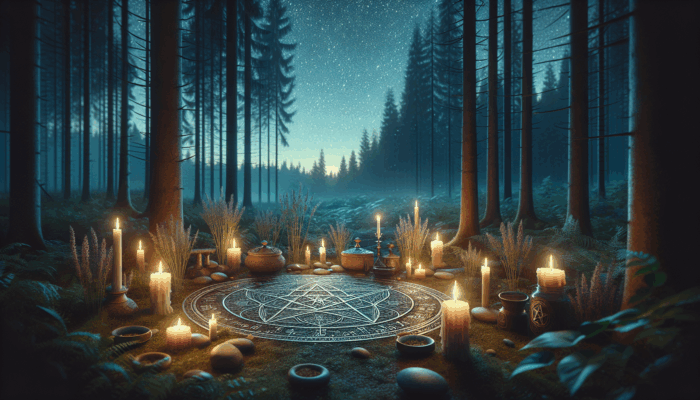
The Ethical Foundation of the Wiccan Rede
At the heart of what is Wicca lies the Wiccan Rede, an ethical guideline that resonates profoundly with the core of human experience: “An it harm none, do what ye will.” This powerful statement encapsulates the essence of Wiccan ethics, advocating for personal freedom while underscoring the importance of responsibility. It encourages practitioners to explore their desires and intentions, as long as they do not cause harm to others or the world around them.
The beauty of the Rede lies in its simplicity and depth. It invites practitioners to engage in introspection and mindfulness when making decisions. Wiccans often meditate on their intentions before performing spells or rituals, ensuring their actions align with this foundational principle. This ethical stance fosters a sense of community and interconnectedness, promoting respect for all living beings and our world.
Globally, the Wiccan Rede has inspired countless individuals to embrace ethical living and cultivate compassion. Its principles resonate beyond the confines of Wicca, influencing those drawn to sustainable and ethical lifestyles. This universal appeal highlights the timeless relevance of the Rede, inviting everyone to consider the impact of their actions on the world and the interconnected web of life that binds us all.
Embracing Duality and Achieving Balance in Wicca
Duality is a cornerstone of Wicca; it reflects the balance between the feminine and masculine energies that pervade nature and exist within ourselves. Wiccans honor both the Goddess and the God, representing the yin and yang of spiritual existence. This duality is not merely a theological construct but a guiding principle that encourages harmony within oneself and the larger world.
In Wiccan practices, the balance of these energies manifests in rituals, spells, and seasonal celebrations. For example, during the festival of Beltane, which celebrates fertility and the vibrancy of life, the emphasis is placed on the creative energy of the Goddess. Conversely, during Samhain, a time that honors the darker aspects of existence, the God’s energy is invoked on themes of death, transformation, and rebirth.
This celebration of duality also extends to the personal realm, where many Wiccans self-reflect to understand their energies better. Embracing both sides allows practitioners to cultivate a holistic approach to life, leading to greater emotional resilience and spiritual growth. This global perspective on duality encourages Wiccans to appreciate diverse paths and belief systems, recognizing that every culture has its interpretations of the divine balance.
Fostering a Deep Connection to Nature
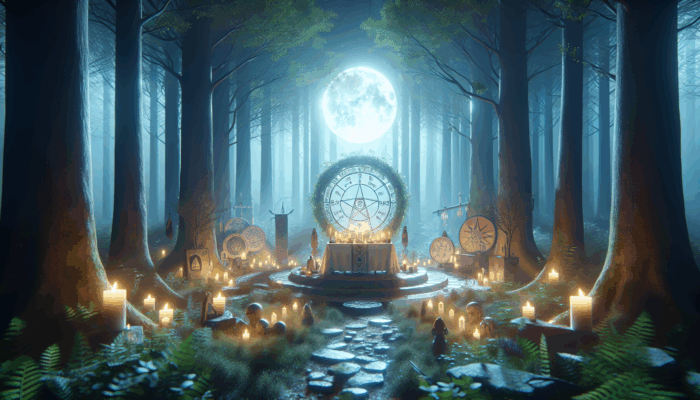
Nature is the heartbeat of Wicca, the sacred canvas where divine energies manifest and flow. Wiccans profoundly revere the earth, viewing it as a living entity imbued with spirit and magic. This connection to nature transcends mere aesthetic appreciation; it forms the very foundation of Wiccan spirituality.
Seasonal changes, lunar phases, and natural phenomena guide Wiccan rituals and practices. The moon's cycles and the changing seasons are constant reminders of life’s impermanence and beauty. Many practitioners celebrate these cycles through festivals, offering gratitude and honoring the earth's bounty. The Wheel of the Year, consisting of eight festivals, encapsulates this deep-seated connection, allowing Wiccans to align their spiritual practices with nature's rhythms.
Furthermore, this relationship extends into environmental stewardship. Many Wiccans actively advocate for ecological preservation, recognizing that caring for the earth is intrinsic to their spirituality. From urban gardens to sacred forest rituals, Wiccans worldwide engage in practices that honor and protect the environment, inspiring others to adopt more sustainable lifestyles.
In a global context, Wicca's reverence for nature resonates with Indigenous beliefs and practices, illuminating a universal truth that transcends borders. By embracing this connection, Wiccans contribute to a larger movement advocating for the earth’s well-being, fostering a sense of responsibility and interconnectedness among all living beings.
The Significance of the Wheel of the Year
The Wheel of the Year beautifully illustrates the cyclical nature of life within Wicca. It comprises eight festivals, each celebrated at specific intervals throughout the year, mirroring the transitions of the seasons. From the lush renewal of Imbolc to the fruitful abundance of Lammas, each festival serves as a poignant reminder of nature’s cycles and the lessons they impart to humanity.
These celebrations are far more than mere time markers; they present opportunities for Wiccans to connect with the earth and one another. Rituals often involve communal gatherings, joyous feasting, and shared offerings, fostering a profound sense of belonging and unity. Each festival has unique themes and symbolism, resonating with diverse cultures and traditions worldwide, further enriching the experience.
For instance, the festival of Ostara, which celebrates the spring equinox, is a time of rebirth and new beginnings. Wiccans may plant seeds—literally and metaphorically—as they embrace the coming year's potential. This theme of renewal and hope echoes across cultures, reflecting shared human experiences and aspirations.
Moreover, the Wheel of the Year encourages practitioners to reflect on their journeys. Each festival invites introspection, prompting individuals to consider their growth and aspirations. This self-awareness cultivates a deeper understanding of one’s place within the greater tapestry of life, reinforcing the interconnectedness central to Wiccan belief.
Through celebrating the Wheel of the Year, Wiccans worldwide foster a profound appreciation for nature’s rhythms, inspiring others to recognize their connections to the cycles of life and the environment.
Emphasizing Personal Responsibility in Wiccan Practice
Personal responsibility is a paramount principle in Wicca. Wiccans believe that individuals are accountable for their actions and the consequences that arise from them, extending this responsibility beyond the individual to encompass a collective duty toward the community and the environment alike.
At its core, personal responsibility encourages Wiccans to engage in self-reflection and ethical consideration before taking action. Whether performing a spell, engaging in community service, or making lifestyle choices, practitioners must carefully weigh their intentions and potential impacts. This mindfulness profoundly shapes a Wiccan’s approach to life, fostering a deep sense of accountability toward oneself and others.
The implications of this principle resonate globally, inspiring individuals to advocate for justice, equality, and environmental sustainability. Wiccans frequently participate in activism, using their beliefs as a foundation for promoting positive change in their communities. By wholeheartedly embracing personal responsibility, Wiccans contribute to a collective effort toward creating a better world for all.
Additionally, this emphasis on accountability fosters a sense of empowerment within practitioners. Wiccans recognize their capacity to effect change within themselves and the broader community. This understanding reinforces the idea that every action matters, encouraging individuals to embrace their power and influence in shaping their realities and the world around them.
By embodying personal responsibility, Wiccans exemplify a commitment to ethical living and inspire others to consider the impact of their choices on the world and its inhabitants.
Engaging in Wiccan Practices and Rituals
Celebrating Sabbats and Esbats
The vibrant tapestry of what is Wicca comes alive through its rituals and observances, particularly during the Sabbats and Esbats. Sabbats mark the eight festivals in the Wheel of the Year, celebrating the cycles of the seasons and the earth’s bounty. Each festival, from the fiery passion of Beltane to the solemn reflections of Samhain, encapsulates the essence of nature’s rhythms and the lessons they impart.
Sabbats are communal celebrations, often filled with feasting, dancing, and rituals honoring the changing seasons. These gatherings foster community as Wiccans share their experiences and intentions. The energy generated by collective celebration amplifies the magic of the rituals, creating a powerful atmosphere of connection, joy, and shared purpose.
On the other hand, Esbats are monthly lunar rituals that align with the moon's phases. Wiccans gather during the full moon to honor its energy, perform rituals, and set intentions for the upcoming lunar cycle. These gatherings provide reflection, meditation, and spellwork opportunities, allowing practitioners to harness the moon’s transformative power and energy.
The significance of Sabbats and Esbats extends beyond mere rituals; they serve as anchors in practitioners' busy lives. These observances encourage Wiccans to pause, reflect, and connect with the earth, fostering mindfulness and a deeper understanding of life’s cycles and the natural world.
Celebrating Sabbats and Esbats globally showcases the diverse expressions of spirituality within Wicca. Wiccans worldwide may incorporate local customs and traditions into their observances, enriching their practices and creating a beautiful mosaic of cultural influences that reflects the diversity of beliefs within the community.
Exploring Spellwork and the Art of Magic
At the heart of Wicca lies the practice of spellwork and magic. Wiccans view magic as a natural force, an extension of the energy present in the universe. Whether for personal growth, healing, or manifesting desires, spellwork is an influential tool practitioners utilize to enhance their spiritual journeys and realize their intentions.
Rituals often use tools, symbols, and focused intentions to channel energy toward a specific purpose. From simple candle magic to elaborate rituals involving multiple participants, spellwork can take many forms, reflecting practitioners' diversity and unique approaches. The key lies in the intention—Wiccans believe that sincere and focused intentions can shape reality and manifest change.
Moreover, Wiccans often emphasize the importance of ethical considerations in spellwork. The “Threefold Law” principle posits that whatever energy one puts into the world will return threefold. This belief encourages practitioners to approach spellwork carefully, ensuring that their intentions align with the greater good and promote positive outcomes.
Globally, spellwork practices vary widely, often incorporating local herbs, stones, and rituals unique to each culture. This diversity enriches the Wiccan tradition, as practitioners learn from one another, blending practices and techniques to create a personalized approach to magic that resonates with their journeys.
Additionally, spellwork fosters a profound sense of empowerment within practitioners. Wiccans recognize their ability to influence reality, inspiring self-discovery and personal growth. This empowerment resonates beyond the individual, motivating practitioners to take active roles in their communities and advocate for positive change in the world around them.
Practicing Meditation and Divination
Meditation and divination are integral components of what is Wicca, providing practitioners with valuable tools for introspection and guidance. Meditation allows Wiccans to quiet the mind, connect with their inner selves, and cultivate awareness of their thoughts and emotions. Through various techniques, such as guided imagery or mindfulness practices, practitioners explore their inner landscapes, fostering personal growth and spiritual development.
Conversely, divination serves as a means of seeking insight and guidance from the universe. Wiccans may utilize tools such as tarot cards, runes, or pendulums to tap into the energies surrounding them. These practices offer clarity and direction, helping practitioners navigate life’s complexities and make informed decisions.
The fusion of meditation and divination creates a holistic spiritual practice. Many Wiccans meditate before performing divination, facilitating a more apparent connection to their intuition and the energies at play. This interplay enhances the accuracy and depth of their readings, illuminating potential paths and possibilities.
Globally, meditation and divination practices are as diverse as the cultures from which they stem. Many Wiccans draw upon local traditions, incorporating unique symbols and methods. This cross-cultural exchange enriches the Wiccan experience, inviting practitioners to explore the wisdom embedded in various spiritual traditions.
Furthermore, the journey of meditation and divination fosters a profound connection to oneself and the universe. By embracing these practices, Wiccans cultivate a deeper understanding of their spiritual paths, inviting growth, transformation, and unfolding their unique journeys.
The Role of Deity in Wiccan Beliefs
Honoring the Divine: The Goddess and the God
At the core of what is Wicca lies the duality of the divine, encapsulated in the reverence for both the God and the Goddess. This dual deity concept embodies the Goddess's balance of masculine and feminine energies, representing the Goddess's connectedness. Wiccans view the Goddess as the nurturing and creative force, while the God embodies strength, protection, and guidance. Goddess is duality, which is not merely symbolic but intricately woven into the fabric of Wiccan rituals and beliefs. Many practitioners honor the God-Goddess in various forms, celebrating her as the Maiden, the Mother, and the Crone. This representation reflects the cyclical nature of life, allowing Wiccans to connect with their own experiences and stages of growth throughout their lives.
Conversely, God is often associated with the natural world, embodying courage and wisdom. Together, the Goddess and the God create a harmonious balance that invites practitioners to explore the interplay of energies within themselves and the world around them.
This global perspective on duality transcends cultural boundaries and resonates with various spiritual traditions. Many Indigenous cultures also honor both masculine and feminine forces, accentuating the universal truth of balance in existence. Through this lens, Wiccans unite with diverse belief systems, fostering a deeper understanding of spirituality’s multidimensional nature.
Moreover, the relationship with the divine is deeply personal for each practitioner. Wiccans are encouraged to develop connections with the Goddess and the God, forging relationships that resonate with their unique spiritual journeys. This personal connection fosters empowerment and intimacy, allowing each individual to explore their understanding of the divine.
Engaging with Various Pantheons and Deities
While the Goddess and God serve as the central deities in Wicca, Wiccans often engage with a myriad of other deities from different pantheons. This eclectic approach allows practitioners to draw upon diverse qualities that resonate with their spiritual paths and personal experiences.
Many Wiccans strongly connect to specific deities based on their experiences or cultural backgrounds. This connection can deepen one’s practice, providing guidance and support during challenging times. For instance, a practitioner may honor Egyptian deities like Isis for healing or the Greek god or goddess Hena for wisdom and strategic insight.
This pantheistic perspective reflects the global nature of Wicca, Goddess practitioners embracing deities from various cultures. This celebration of diversity fosters an inclusive spiritual environment, allowing individuals to explore multiple facets of the divine and enrich their spiritual practices.
The importance of rituals and offerings to these deities varies among practitioners. Some may create altars dedicated to specific deities, while others incorporate offerings into their rituals. This personal relationship with the divine invites practitioners to forge connections that resonate with their spiritual journeys, reinforcing that spirituality is a deeply personal and individual experience.
Furthermore, the acknowledgment of multiple deities encourages a broader understanding of spirituality. Wiccans are invited to appreciate the richness of various cultural beliefs, fostering respect and interconnectedness among different traditions. This embrace of diversity enhances the Wiccan experience, inviting practitioners to explore the depths and nuances of their spirituality.
Nurturing Personal Relationships with Deity
Developing a personal relationship with the divine is a core aspect of what is Wicca. Wiccans are encouraged to explore their connections with the Goddess and the God, allowing for a unique and intimate spiritual journey. This relationship is not dictated by rigid dogma; it unfolds organically, evolving over time and reflecting the individual’s growth and experiences.
Many practitioners begin their journey by honoring the divine through rituals, prayers, and offerings. These acts of devotion foster connection, inviting the energies of the deities into their lives. As the relationship deepens, Wiccans often experience signs, messages, or intuitive insights, reinforcing their bond with the divine and guiding their paths.
Moreover, personal relationships with deities empower practitioners to navigate their lives with guidance and support. Many Wiccans turn to their chosen deities during challenges, seeking wisdom and strength in times of need. This reliance on the divine fosters a sense of comfort and reassurance, reinforcing the belief that the universe is inherently benevolent and supportive of their journeys.
Various spiritual traditions globally reflect the practice of developing personal relationships with deities. Many Indigenous cultures emphasize similar connections, underscoring the importance of relationship and reciprocity with the divine. This shared understanding highlights the universal nature of spiritual experiences, inviting Wiccans to find common ground with diverse belief systems.
Ultimately, forging a personal relationship with the divine is a deeply enriching aspect of Wiccan practice. By nurturing this connection, practitioners cultivate intimacy with their spirituality, empowering them to navigate their lives with purpose, clarity, and direction.
Essential Wiccan Tools and Symbols
Understanding the Athame and Wand
In Wicca, tools serve as extensions of the practitioner's intent, with the athame and wand standing out as two of the most significant instruments. The athame, a ritual dagger, symbolizes the element of air and is often used in rituals to direct energy. Its double-edged blade represents the duality of existence, embodying both creation and destruction, and serves as a powerful symbol of intention.
Wiccans wield the athame during important ceremonies, such as casting circles or invoking deities. This tool acts as a powerful conduit for intention, allowing practitioners to channel their energy effectively. Holding the athame elevates the ritual, inviting participants to connect deeply with their intentions and the energies they wish to manifest.
Conversely, the wand, typically associated with the element of fire, embodies creativity, inspiration, and the power of manifestation. Wiccans use the wand to direct energy, often in spellwork or rituals requiring focused intention. The wand’s symbolic representation extends beyond its physical form; it serves as a reminder of each practitioner's innate power and potential.
The athame and the wand showcase the beauty of personal expression in Wiccan practice. Many practitioners craft or choose these tools based on their unique connections and individual preferences, fostering a sense of ownership over their spiritual journey. This individuality is celebrated in Wicca, reflecting the diversity of practices and beliefs among practitioners worldwide.
Globally, ritual tools are a common theme in various spiritual traditions, highlighting the universal desire for connection and expression. Wiccans embrace this shared understanding, drawing inspiration from diverse cultures while infusing their practices with personal meaning and significance.
Exploring the Pentacle and Chalice
Two other significant symbols in what is Wicca are the pentacle and chalice, each holding profound meaning within Wiccan rituals. The pentacle, a five-pointed star encased in a circle, represents the elements of earth, air, fire, water, and spirit. This symbol embodies the interconnectedness of all things and serves as a reminder of the sacred nature of existence and the balance inherent in the universe.
Wiccans often use the pentacle in rituals and spellwork, placing it on altars as a focal point for energy. Its presence invites balance and harmony, encouraging practitioners to align themselves with the elemental forces at play in their lives. The pentacle’s significance transcends cultural boundaries, resonating with various spiritual traditions that honor the elements and the sacredness of nature.
The chalice, symbolizing the element of water, represents the divine feminine and the sacredness of life. Wiccans use the chalice during rituals to hold offerings, such as wine or water, as a gesture of gratitude and reverence. Sharing a drink during ceremonies fosters a sense of community and connection among participants, reinforcing the bonds of shared experience and intention.
Together, the pentacle and chalice embody the core principles of Wicca: balance, reverence, and connection. These symbols remind practitioners of the sacredness of life and encourage them to honor both the physical and spiritual aspects of their existence in every aspect of their lives.
Globally, the symbolism of the pentacle and chalice finds resonance in various cultures, highlighting the shared understanding of the divine and the sacred. Wiccans embrace this rich tapestry of beliefs, celebrating the beauty of diversity while affirming their unique spiritual paths and experiences.
Creating Altar Setup and Sacred Spaces
Establishing sacred spaces and altars is a cherished practice within what is Wicca. These areas serve as focal points for meditation, rituals, and offerings, inviting practitioners to connect deeply with their spirituality. Wiccans often personalize their altars, incorporating elements that resonate with their beliefs, intentions, and personal experiences.
A well-set altar typically includes essential tools like the athame, wand, chalice, pentacle, candles, herbs, and crystals. Each item carries significance, echoing the practitioner’s intentions, aspirations, and spiritual journey. Arranging these tools and symbols creates a powerful energetic space, inviting the divine and enhancing the overall ritual experience.
The concept of sacred space extends beyond physical altars. Wiccans understand that creating an environment conducive to spiritual practice is essential. This can involve clearing clutter, setting intentions, and inviting positive energy into the space. Creating a sacred space invites mindfulness and reflective contemplation, whether indoors or outdoors.
Various spiritual traditions worldwide reflect the setting up of altars and sacred spaces. Many cultures emphasize creating environments that honor the divine, showcasing the universal desire for connection and reverence. Wiccans celebrate this shared understanding, drawing inspiration from diverse practices while infusing their spaces with personal meaning and significance.
Creating sacred spaces and altars ultimately fosters a sense of belonging and connection to the divine. By nurturing these environments, Wiccans cultivate intimacy with their spirituality, empowering them to navigate their journeys with purpose, clarity, and intention.
Wiccan Community: Embracing Collective and Solitary Practices
Understanding Coven and Group Rituals
In the vibrant world of what is Wicca, community plays a crucial role, particularly through covens and group rituals. Covens are small groups of practitioners who share their spiritual journeys, celebrate traditions, and deepen their connections with the divine. These gatherings foster a sense of belonging, allowing individuals to explore their beliefs in a supportive and nurturing environment.
Group rituals amplify the energy within Wiccan practices, creating a powerful collective experience. Participants often contribute their unique skills, perspectives, and intentions, enriching the ritual’s depth and significance. This collaboration fosters community bonds, as practitioners share their intentions and experiences, reinforcing the interconnectedness at the heart of Wiccan belief.
Moreover, covens provide opportunities for mentorship and learning. More experienced practitioners often guide newcomers, sharing knowledge, insights, and practices that enhance individual growth and understanding. This nurturing environment encourages exploration, enabling practitioners to develop their unique spiritual paths within a supportive community.
Globally, the concept of community within spiritual practices resonates across cultures. Many belief systems emphasize the importance of communal gatherings, showcasing the universal desire for connection and shared experience. Wiccans embrace this shared understanding, fostering inclusive communities that celebrate diversity while honoring individual paths and beliefs.
As the world evolves, the role of covens continues to adapt, with many practitioners embracing online communities and virtual gatherings. This accessibility allows Wiccans to connect with others across the globe, sharing resources, insights, and experiences that enrich their spiritual journeys and foster a sense of belonging.
Exploring the Depths of Solitary Wicca
While community plays a significant role in what is Wicca, solitary practice is equally valid and fulfilling. Many Wiccans engage in their spiritual journeys independently, finding empowerment in self-discovery and personal exploration. Solitary Wicca allows individuals to tailor their practices to suit their unique beliefs, preferences, and lifestyles, creating a deeply personal relationship with their spirituality.
Practicing Wicca alone offers flexibility and freedom, enabling individuals to explore their spiritual paths without the constraints of group dynamics. This autonomy empowers practitioners to experiment with rituals, spells, and meditation techniques that resonate with their journeys. The absence of external expectations encourages authenticity and self-expression, allowing individuals to connect with their spirituality in a solitary practice. However, this practice also presents challenges. Some individuals may experience isolation or lack of support, particularly when navigating complex spiritual questions or experiences. Many solitary practitioners seek connection through online communities, forums, and social media to address this, fostering a sense of belonging and shared experience that enriches their solitary journeys.
Globally, solitary spirituality reflects a growing trend toward individual empowerment within various belief systems. Many spiritual traditions celebrate the importance of self-exploration, inviting practitioners to forge their paths while honoring diverse expressions of spirituality and belief.
Ultimately, solitary Wicca offers a rich and rewarding experience, allowing practitioners to cultivate a deep connection with their spirituality. By embracing this path, individuals empower themselves to navigate their journeys with intention, authenticity, and a profound understanding of their spiritual selves.
Connecting Through Online Wiccan Communities
The digital age has ushered in a new era of connection within what is Wicca. Online Wiccan communities provide platforms for practitioners to share resources, exchange ideas, and connect with others who resonate with their beliefs. These virtual spaces foster a sense of belonging, bridging geographical gaps and allowing Wiccans from diverse backgrounds to engage in meaningful dialogue and explore their spirituality.
Social media platforms, forums, and dedicated websites are hubs for learning and collaboration. Practitioners share insights, rituals, and personal experiences, creating a rich tapestry of knowledge that empowers others on their spiritual journeys. Additionally, online communities often host virtual events, workshops, and discussions, facilitating learning and connection in real-time.
The accessibility of online resources has also democratized Wicca, enabling individuals to explore their spirituality without the barriers of physical distance or societal stigma. This inclusivity encourages practitioners to embrace their identities, fostering a sense of pride and empowerment within the Wiccan community as they connect with others who share similar beliefs and practices.
Globally, the rise of online communities reflects a broader trend toward digital connection in various spiritual traditions. Many practitioners utilize technology to bridge gaps and foster connections, showcasing the universal desire for belonging and shared experience in a diverse world.
While online communities offer numerous benefits, practitioners are encouraged to approach these spaces with discernment. Navigating the vast information landscape requires critical thinking and self-awareness, ensuring individuals engage with resources that resonate with their unique beliefs, values, and spiritual journeys.
Ultimately, online Wiccan communities enrich the practice of Wicca, fostering connection, collaboration, and shared exploration in ways that transcend geographical boundaries. By embracing these digital spaces, practitioners cultivate a sense of unity and shared purpose, empowering them to navigate their spiritual journeys together.
Wicca's Place in Modern Spirituality
Diverse, Eclectic, and Traditional Paths
The landscape of what is Wicca is beautifully diverse, with practitioners following either eclectic or traditional paths. Traditional Wicca often adheres to established practices, rituals, and coven structures rooted in historical teachings. This path emphasizes lineage and the preservation of ancient wisdom, inviting practitioners to connect with the teachings and traditions passed down through generations.
Conversely, eclectic Wicca embraces a more individualized approach, allowing practitioners to draw from various traditions, spiritualities, and personal experiences. This flexibility empowers individuals to create a practice that resonates with their unique beliefs and lifestyles. Eclectic Wiccans may incorporate elements from other faiths, philosophies, or even personal insights, resulting in a rich tapestry of practices that reflect their spiritual journeys.
The choice between eclectic and traditional paths reflects the broader trend toward personalization in modern spirituality. Many practitioners seek spiritual fulfillment that aligns with their individuality, prioritizing authenticity over rigid structures. This evolution in Wiccan practice mirrors a global shift toward embracing diverse expressions of spirituality, celebrating the uniqueness of each practitioner’s spiritual journey.
Moreover, blending eclectic and traditional paths fosters a sense of community among Wiccans. Practitioners are encouraged to share their insights and experiences, creating an environment of learning and mutual growth. This collaborative approach invites a deeper understanding of the rich tapestry of Wiccan beliefs and practices, fostering respect and appreciation for diverse perspectives within the community.
Ultimately, whether one follows a traditional or eclectic path, the journey of exploration and self-discovery is at the heart of Wiccan spirituality. By honoring the diversity of practices, Wiccans cultivate a vibrant community that celebrates the beauty of individual expression and unique spiritual journeys.
Engaging in Meaningful Interfaith Dialogue
In an increasingly interconnected world, interfaith dialogue is paramount, especially within Wicca. Wiccans are encouraged to converse with practitioners of other faiths, fostering understanding, respect, and collaboration. This dialogue invites individuals to explore common values and shared beliefs, breaking down barriers and promoting unity among diverse spiritual traditions.
Interfaith dialogue allows Wiccans to share their perspectives, dispelling misconceptions and stereotypes about their beliefs. By openly discussing their practices and values, Wiccans contribute to a broader conversation about spirituality, encouraging inclusivity and acceptance within the global community.
Moreover, these dialogues often reveal common themes across belief systems, such as reverence for nature, the importance of compassion, and the pursuit of personal growth. Recognizing these shared values fosters a sense of interconnectedness, reminding practitioners that, at their core, spirituality transcends cultural and religious boundaries.
Globally, interfaith initiatives are gaining momentum, with many organizations dedicated to fostering dialogue and understanding among different faiths. These efforts reflect the universal desire for peace and connection, showcasing the potential for collaboration and coexistence in a diverse world.
Wiccans contribute to a larger movement advocating unity and respect among all spiritual paths by engaging in interfaith dialogue. This commitment to understanding and acceptance enriches the Wiccan experience, inviting practitioners to embrace diversity while honoring their unique beliefs and practices.
The Impact of Wicca on Contemporary Culture
The influence of Wicca has permeated contemporary culture, shaping perceptions and representations in various media. From literature and film to art and fashion, Wiccan themes and symbols are increasingly visible, reflecting a growing fascination with witchcraft, nature spirituality, and alternative belief systems.
Media portrayals of Wicca often oscillate between romanticized interpretations and misconceptions. While some representations celebrate the beauty and empowerment of Wiccan practices, others perpetuate stereotypes that reduce the complexity of the tradition to mere sensationalism or caricature.
This visibility in contemporary culture invites discussions about Wicca and its practices, encouraging curiosity and exploration. As more individuals become interested in understanding Wicca, the potential for education and awareness expands, fostering respect for diverse spiritual paths and encouraging individuals to engage thoughtfully with the tradition.
Moreover, the rise of social media has empowered Wiccans to share their experiences and insights with a global audience. Practitioners utilize these platforms to educate others, dispel myths, and celebrate the richness of their traditions. This democratization of knowledge allows for a broader understanding of Wicca, inviting individuals to engage with the tradition meaningfully and respectfully.
Ultimately, Wicca’s presence in contemporary culture reflects a broader trend toward exploring spirituality outside traditional religious structures. As society evolves, the fascination with Wicca grows, inviting individuals to explore the depths of their spiritual journeys while embracing the beauty of diverse beliefs and practices.
Frequently Asked Questions about Wicca
What is Wicca?
Wicca is a contemporary pagan spiritual practice that emphasizes the worship of nature and dual deities (the Goddess and the God) and the importance of ethical living and personal responsibility.
What are the core beliefs of Wicca?
Core beliefs include the Wiccan Rede, duality and balance, connection to nature, and the importance of personal responsibility in actions and intentions, promoting a holistic approach to spirituality.
What is the significance of the Wheel of the Year?
The Wheel of the Year consists of eight festivals celebrating life's cyclical nature and the changing seasons, fostering a deep connection to nature and its rhythms.
How do Wiccans perform rituals?
Rituals often involve tools like the athame, wand, chalice, and pentacle, along with intention-setting, meditation, and celebrating Sabbats and Esbats, creating a rich spiritual experience.
Is Wicca considered a religion?
Yes, many consider Wicca a religion, although it is also viewed as a spiritual practice emphasizing personal beliefs and connections with the divine.
Can Wicca be practiced alone?
Absolutely! Many practitioners choose solitary practice, allowing for personal exploration and tailored spiritual experiences that resonate with their unique journeys.
What role do deities play in Wicca?
Wiccans honor both the Goddess and the God, representing duality in nature and the importance of balance. They also honor a variety of other deities from different pantheons that resonate with individual practitioners.
How does Wicca relate to nature?
Wicca strongly emphasizes reverence for nature. It views the earth as sacred and celebrates its cycles through rituals, festivals, and a deep commitment to environmental stewardship.
What is the difference between eclectic and traditional Wicca?
Eclectic Wicca allows for personalized practices drawing from various traditions, while traditional Wicca adheres to established rituals and teachings based on historical lineages and practices.
How has modern culture impacted Wicca?
Wicca's visibility in contemporary culture has increased interest, education, and representation in media, shaping perceptions and inviting exploration of the tradition among diverse audiences.
